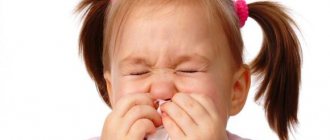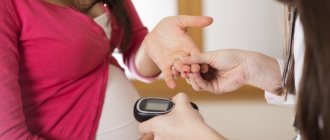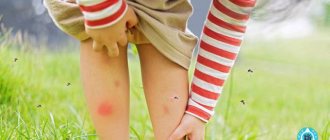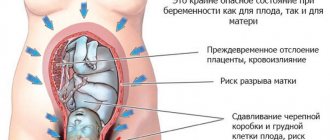Causes of dental problems after childbirth
Everything in the female body is interconnected, so oral pathology occurs in most women already in the first months of pregnancy. Among changes in a woman’s hormonal and immune levels that lead to disturbances in the physiological structure of the teeth, doctors consider the following factors to be the main ones:
- Intrauterine growth of a baby usually leads to a direct malfunction of the immune system of the expectant mother, including disturbances in the chemical composition of saliva. Under normal conditions, special substances contained in saliva block the harmful effects of active food factors on tooth enamel, but during pregnancy this natural protection of the oral cavity is sharply reduced.
- A major role in the occurrence of such a dental problem in a young mother is played by the lack of calcium in the woman’s blood washing the oral cavity. This microelement is almost completely removed from the pregnant woman’s body to strengthen the bones of the unborn baby. This mechanism of transferring nutrients to the child reaches its peak from 20 to 30 weeks of pregnancy.
- When teeth crumble after childbirth, women should remember the toxicosis that accompanied her throughout pregnancy. This process not only enhances the excretion of beneficial microelements from the expectant mother’s body, but also affects the woman’s appetite. Constant vomiting and weakness do not contribute to a normal diet; the pregnant woman begins to limit herself in food, which aggravates the lack of calcium in the blood.
- A fairly common problem that expectant mothers face is inflammation of the oral cavity or gingivitis. Given the low immune level in such patients, the infection instantly affects the gums and causes the development of an inflammatory disease - periodontitis. With this disease, young girls' teeth begin to loosen and fall out.
- Hormonal changes in the body of pregnant women lead to a decrease in the thickness and density of the protective layer of teeth. The enamel covering them becomes a weak barrier to various infections. Such pathological conditions of the expectant mother’s oral cavity often cause toothache after childbirth.
We recommend reading the article about vitamins after childbirth. From it you will learn about the importance of taking vitamins during lactation, essential substances and microelements, as well as natural sources of vitamins.
Most problems with the oral cavity and teeth in young mothers begin long before the birth itself, however, even after the birth of the baby, this pathological condition continues to disturb the woman. For normal development, a baby requires a large amount of calcium, which can only enter his body with mother’s milk.
Of course, such a transfer of useful substances and microelements into the child’s blood does not pass without leaving a trace, and dental problems only intensify. To prevent them, experts recommend that women immediately after discharge from the maternity hospital visit a dentist and get advice on proper sanitation of the oral cavity.
What to do if the temperature rises?
During this difficult period for every baby, the mucous membranes in the oral cavity become inflamed. As a result, the body responds in the form of an increase in temperature.
If it does not exceed 38 degrees, then mothers should not worry, since the condition of their children should normalize naturally within a few days.
We suggest you read: Chickenpox on the gums of a child
In the case when the temperature rises above 39 degrees, it may indicate the development of pathological processes and the children should be shown to pediatricians.
Do you want to know what the throat looks like with a sore throat in an adult? Then you just need to go to
link
, and read our article.
If you are looking for information about what a person’s correct dental bite looks like, we advise you to follow the link.
The specialist will examine the young patient and prescribe an antipyretic drug.
How can a dentist help young mothers?
Many women after childbirth do not pay due attention to the condition of their teeth. Most often this comes from an elementary feeling of fear of physical pain, but many women consider this problem not particularly relevant.
Typically, nursing mothers go to the doctor when they notice that their teeth are decaying after childbirth. A similar process in the oral cavity leads to disruption of a woman’s normal nutrition during lactation, which cannot but affect the baby’s health.
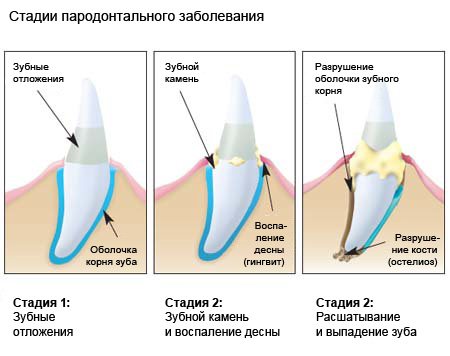
Doctors at the antenatal clinic recommend that women visit the dentist at least 3-4 times a year during breastfeeding, even if there are no complaints about the condition of the teeth and gums. The first visit to the doctor should be already in the first month after birth.
The specialist will assess the condition of the oral cavity, advise the woman on a specialized toothpaste, and give recommendations on cleaning the enamel and strengthening the teeth. Usually, the main problem during this period of a young mother’s life is the lack of minerals entering the oral cavity.
To prevent pathology, modern dentistry has in its arsenal special techniques using fluoride, calcium and magnesium. This method of treating enamel will reduce its destruction and reduce the level of pain irritation.
Sensitive teeth after childbirth are one of the main reasons for visiting the dentist. The young mother is forced to deny herself regular dishes. The usual temperature and mechanical conditions become an irritant for a woman.
The main reason for this pathology is exposure of the root. The enamel is exposed to external factors, the density of the tooth coating decreases due to calcium leaching, and the nerve endings come out. Experts recommend special toothpastes for this group of patients. Typically, such medications are applied to the teeth and gums immediately after cleaning for 30 minutes.
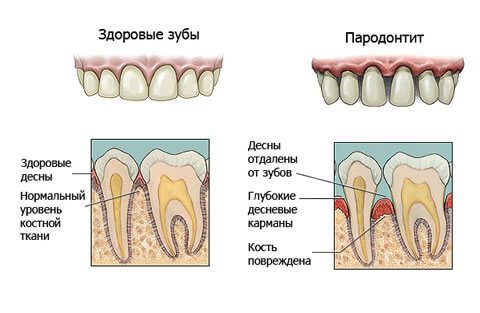
In medical universities, dentistry is a separate department. And this division was not done in vain. Oral diseases are considered a very serious problem; specialists treat them with due care.
The main rules for the appearance of baby teeth according to Komarovsky
Science is powerless over the time and order of appearance of teeth. Komarovsky believes that teeth may well appear in an order different from the generally accepted one, and how many there will be at a certain age is also purely individual. Don’t panic if your baby’s upper canine is the first tooth to come out and all this action is accompanied by slight diarrhea and a runny nose. The most important rules:
- No matter how many months your baby is, by the age of three he is guaranteed to have grown all his baby teeth;
- An incorrect sequence of teeth appearance (“not according to the book”) is an absolutely normal phenomenon and you should not drag your child to the dentist;
- Teeth may well come out six months earlier or later: this is individual for all babies, but dentists consider the average age for the appearance of the first tooth to be 7.5 months;
- It is impossible to influence the growth rate, sequence of appearance or quality of teeth with medications.
All parents watch with trepidation how their newborn baby develops. Some changes bring joy, while others cause anxiety. So, many people don’t know what to do when the baby starts teething. To distinguish this natural process from a cold and not harm the baby, you need to listen to the opinion of the authoritative doctor Komarovsky.
Many parents, with someone's easy suggestion, support the rather strange opinion that baby teeth turn black and darken due to childhood intestinal dysbiosis. Black plaque can appear, according to Komarovsky, only for two groups of reasons:
- Metabolic disorders, and, first of all, phosphorus, calcium and vitamin D.
- A number of other reasons may be associated with insufficient functions of saliva. If a child breathes too dry air, his saliva dries out and cannot effectively fight bacteria that enter the mouth. Hence the dark plaque on the teeth.
Dysbacteriosis is in no way connected with the condition of the child’s teeth, Komarovsky emphasizes. If teeth darken, you should not feed the child probiotics, but take him to a good pediatric dentist so that he can prescribe treatment that is appropriate to the situation.
Komarovsky believes that the following symptoms are the reason to call a doctor at home or visit him at a children's clinic when children are cutting teeth:
- An increase in temperature to 38 degrees or higher, accompanied by a general deterioration in the baby’s condition. The teething process itself cannot cause high fever, as Komarovsky says. But during this period, the baby’s immunity is weakened, he is more susceptible to colds and infectious diseases than in the normal state. Therefore, it makes sense to call a pediatrician at home and carry out appropriate treatment if the child really has a cold.
- Digestive disorders. Symptoms such as gas, colic, diarrhea, and vomiting in infants are very dangerous - the baby’s body quickly becomes dehydrated, and this can also cause an increase in temperature. The teeth have nothing to do with it - most likely, the baby caught the infection while walking, in the sandbox, or with food. When teething, babies chew on everything they can get their hands on – and it’s not always a clean object. Therefore, in case of problems with the digestive tract, you should consult a doctor immediately, regardless of whether teeth are being cut or not.
What does Komarovsky advise to relieve gum pain when the first teeth are cutting? No medications! According to the pediatrician, special silicone rings and figurines filled with water, which need to be cooled in the refrigerator, are sufficient. The child will chew them and thereby massage and soften the gums. This speeds up the passage of the tooth through soft tissues, reduces itching, swelling and discomfort.
But Komarovsky does not recommend giving solid fruits and vegetables to your child, as many grandmothers do. This is useful for older children whose teeth have already erupted and now need to be cleaned and strengthened. A baby can easily choke on a hard piece of apple or carrot. The same applies to hard cookies.
We suggest you read: Which teeth to put on the upper jaw
How is oral treatment performed after childbirth?
In the postpartum period, the main complaints of young mothers are gum disease and destruction of tooth enamel. Both of these problems require appropriate treatment.
Treatment of periodontitis or periodontal disease in a nursing mother
Quite often, during breastfeeding, women go to the doctor with a complaint that their teeth are loose after childbirth. The sign usually indicates that the mother has problems with her gums or, as doctors call it, periodontitis. If teeth fall out after childbirth, then this is a sure symptom of such a pathology.
Typically, treatment of pathology will be complex. Most often, infectious disease specialists and endocrinologists come to the aid of dentists.
Basically, doctors adhere to the tactics of therapeutic treatment of this disease in nursing mothers, prescribing drugs that enhance metabolism in the mother’s body and stimulate blood flow in the affected area.
Considering that during breastfeeding, any medicine can become dangerous for the baby, treatment must be agreed upon with the attending physician.
In addition to medications, splints on problem areas, prosthetics made from special dental crowns, and complete removal of teeth that cannot be corrected are widely used to get rid of periodontal disease.
In rare cases, they resort to surgery: using a bone graft, the body of the jaw is restored. Such surgical intervention is used in 70% of cases for pathology of the lower jaw.
Caries after childbirth
This type of pathology of the oral cavity of a nursing mother usually completely depends on the process of changes in the woman’s hormonal levels. Estrogens and progesterone affect the resistance of enamel and contribute to the destruction of the teeth themselves.
Stages of caries development after childbirth
It should be noted that dentists adhere to some basic rules when treating nursing mothers:
- Modern drugs for local anesthesia usually last no more than 2-5 hours, which allows you to avoid interrupting the baby’s feeding.
- If there is an emergency operation, then a young mother should express breast milk so that 2-3 breastfeedings after surgery do not risk the baby’s health.
- Dental treatment after childbirth requires massive use of antibiotics. Such therapy in 90% of cases requires stopping breastfeeding. Before going to the dentist, a nursing mother should discuss the issue of feeding her baby with her pediatrician.
- When treating caries, you need to remember that fillings and dental implantation are completely prohibited during lactation. Any foreign elements are not recommended for young mothers. If there is an urgent need for a filling, it is recommended that you discuss with your pediatrician the issue of temporarily stopping breastfeeding.
Treatment of oral diseases in a nursing mother is a rather serious problem and does not always coincide with the baby’s feeding regimen. If there are no big problems, then it is best to follow certain prevention methods than to treat teeth during lactation.
Watch the video about dental treatment after childbirth:
Basic principles of teething according to Komarovsky
The main thing that the child’s parents should know is that the doctor cannot in any way influence the rate at which teeth appear, no matter how much he examines and treats the child. No injections or miracle drops will help rapid teething, but they can help cope with the problems associated with this phenomenon: diarrhea, fever and runny nose with snot discharge.
The next thing Komarovsky reminds us of is that all children will sooner or later have teeth! How many toothless school graduates have you seen? Therefore, you should not attribute the slightest hysterics and bowel disorders to your teeth. Fever, runny nose, diarrhea and snot in children can appear from a simple infection that was brought in by neighbor Uncle Vasya when he went to buy salt.
Normally, children's first teeth may produce a slight fever and mild sinus congestion or runny nose. If the baby has a serious temperature above 38.5, loose diarrhea and endless snot, teething has nothing to do with it!
Each child is individual, so he may not have standard symptoms at all (diarrhea, fever, snot, runny nose).
Komarovsky advises examining the child’s oral cavity as little as possible: you can inadvertently introduce an infection.
Basic methods of preventing oral diseases
Young mothers have a very weakened immune system, which creates a high probability of infectious infection of the female body, including the oral cavity. To prevent such problems, experts recommend several protection methods.
General recommendations
Once your baby is born, you should pay attention not only to him, but also to your health. At your appointment, your doctor will advise you to follow these recommendations:
- Very hot foods and sugar are completely prohibited. In addition to the fact that it is simply harmful to the baby, such substances have an extremely negative effect on a woman’s teeth.
- After eating, it is necessary to cleanse the oral cavity. Your dentist will help you choose a toothpaste and brush.
- Your toothbrush needs to be changed 2 times a month. If the bristles cease to perform their function of completely cleansing the oral cavity, then such exercise will not bring the benefit that the woman expects.
- The use of toothpaste with a high fluoride content for treatment will be another important recommendation on how to strengthen teeth after childbirth. This microelement has a beneficial effect on enamel and reduces the risk of tissue decomposition.
Many doctors recommend that young mothers use special “flossers” or threads that will help the woman remove food debris and prepare the oral cavity for treatment with medicated toothpaste or a special liquid.
How to brush your teeth correctly
Breastfeeding diet for women with dental problems
Experts recommend that young mothers adhere to the following diet:
- First of all, include fermented milk products in your daily menu. Sheep and goat milk, cottage cheese, hard cheese and natural yogurt are perfect for feeding women during lactation. It is advisable that these products are not derived from cows, since during lactation this option can cause digestive problems in the baby.
- Calcium can enter the body of a nursing mother if the woman allows herself to expand her diet with sesame seeds, hazelnuts, pistachios and almonds. All these gifts of nature can fully compensate for calcium costs.
- Regular greens from the garden will help in the fight against excessive consumption of calcium and other microelements by the body of a young mother. Simple nettle, parsley, dill and sesame will completely compensate for the loss of nutrients, especially if they are introduced into the daily diet. If a woman complains that her teeth have turned yellow after childbirth, the usual gifts of vegetable gardens will help solve this problem.
In addition to calcium deficiency, problems usually arise in patients suffering from magnesium deficiency. In order to compensate for the loss of this substance, young mothers are recommended to include sunflower and pumpkin seeds, regular wheat bran, rose hips and cumin in their diet.
Vitamins to prevent caries after childbirth
It is recommended that from 2 to 5 months after the birth of the baby, you begin to take a multivitamin complex, the basis of which is the usual vitamins D and C. These substances help strengthen the baby’s bones, while simultaneously increasing the strength of the mother’s teeth, which are often subject to changes after pregnancy.
Vitamin D contributes to the concentration of calcium in the mother's bones, including her teeth. It should be borne in mind that the daily requirement for this microelement in the female body usually exceeds 100 - 200 conventional units.
When treating oral diseases, it is best for a young mother to completely switch to fish dishes. If pike perch, horse mackerel, perch or other seafood are constantly on the patient’s table, then a woman following such a diet will not face caries.
Vitamin C is also extremely important for breastfeeding women. It is this substance that is responsible for stabilizing the immune system, so the possibility of developing purulent pathology of the oral cavity with constant consumption of citrus fruits or figs is sharply reduced.
We recommend reading the article about hair after childbirth. From it you will learn about the causes of hair loss, methods of hair restoration, and effective traditional medicine recipes.
Dental treatment for a young mother is a very important problem, since the quantity and quality of her breast milk depends on the quality of nutrition. But at the same time, it should be remembered that any medications in the first 5 - 6 months after birth are extremely dangerous for the baby. It is in this contradiction that the professionalism of doctors should manifest itself, because they must combine assistance to a nursing mother and the safety of the child.
How to eat so that teeth remain in place and is it possible to treat teeth while breastfeeding?
The common assertion of our mothers that teeth begin to fall out from breastfeeding for a long time always depends on the diet of the nursing mother and dental care.
Cold or first teeth
For each baby, the process of teething begins at its own time, which is determined during the period of intrauterine development:
- at 3 months;
- at 4 months;
- at 5 months;
- at 6 months.
| Name | Location | Unit change | Time |
| Incisors (centered) | lower | months | 6-7 |
| upper | months | 8-9 | |
| Incisors (placed on the sides) | upper | months | 9-11 |
| lower | months | 11-13 | |
| Small molars | lower and upper | months | 12-15 |
| Fangs | top and bottom | months | 18-20 |
| Molars (huge) | lower and upper | months | 24-30 |
In children who are starting to teethe, the temperature often rises to 37-38º C. It must be remembered that such a symptom is not always explained by teething. Thus, fever often indicates the onset of a cold, which is caused by weakening of the body. If the temperature rise lasts 3-4 days or longer, you need to call a doctor at home.
The timing of the appearance of the first teeth in a child is strictly individual, emphasizes Evgeniy Komarovsky. There are certain average norms, but deviation from them is not considered a pathology. The first teeth, according to generally accepted medical standards, are cut at 6-7 months. This process can drag on for almost 2.5 years.
The vast majority of two-year-old children already have 20 teeth in their mouths.
Dr. Komarovsky will tell you in the next video the timing of the eruption of the first teeth, what to give the child to chew, what to smear on the gums.
Many parents, according to Komarovsky, worry about late teething. There is no need to panic and stress yourself out, says the doctor. Teething is a very individual process; for some, the first incisor may come out at 4 months, while for others there is none even at 8 months. The order of eruption may also differ significantly from existing general standards, and, according to Komarovsky, there is no pathology in this.
Often mothers note a decrease in the baby’s appetite during the eruption of the first incisors. Everything is simple here, says Komarovsky, sucking causes some discomfort, which is why the baby refuses to suck. But even in this situation, you should not force-feed the toddler, it will not bring any benefit.
Evgeny Komarovsky always answers this question the same way - from 1.5-2 years.
Children tend to imitate, and therefore in most cases there are no problems with teaching proper care. Many parents are stopped by the fact that the baby does not know how to rinse his mouth and spit out water. Let him swallow, says Komarovsky, if he likes it that way. But for such a child, you should not buy children’s toothpastes, but regular tooth powder rich in calcium. And let him swallow it to his health.
Any mother will say with confidence when her child got his first tooth. This event has been awaited almost since birth. And when the moment of teething comes, the baby does not always behave calmly. What symptoms accompany the eruption of the first teeth in babies? Is it possible to alleviate this condition and how to do it?
You may be interested in the “Baby Development Book” - in this book you can record all the achievements of your baby, including information about the first teeth.
Dentists are inclined to believe that teeth should be brushed from the moment they begin to appear. Dr. Komarovsky has a different opinion: he is convinced that a child should be taught oral hygiene from the age of two. At the same time, brushing your teeth should be a joy and a pleasure.
However, if:
- the child’s mouth does not dry out;
- the room is damp and clean;
- after eating, the baby does not have food left in his mouth;
- If your baby doesn't eat before bed, you can wait until you get used to brushing your teeth.
How to keep teeth while breastfeeding
It is enough not to indulge in sweets, brush your teeth regularly and eat foods containing calcium every day. If you love dairy and your child tolerates it well, cheese, biphytate, cottage cheese, milk (not only cow’s) will fill the diet with dental minerals
